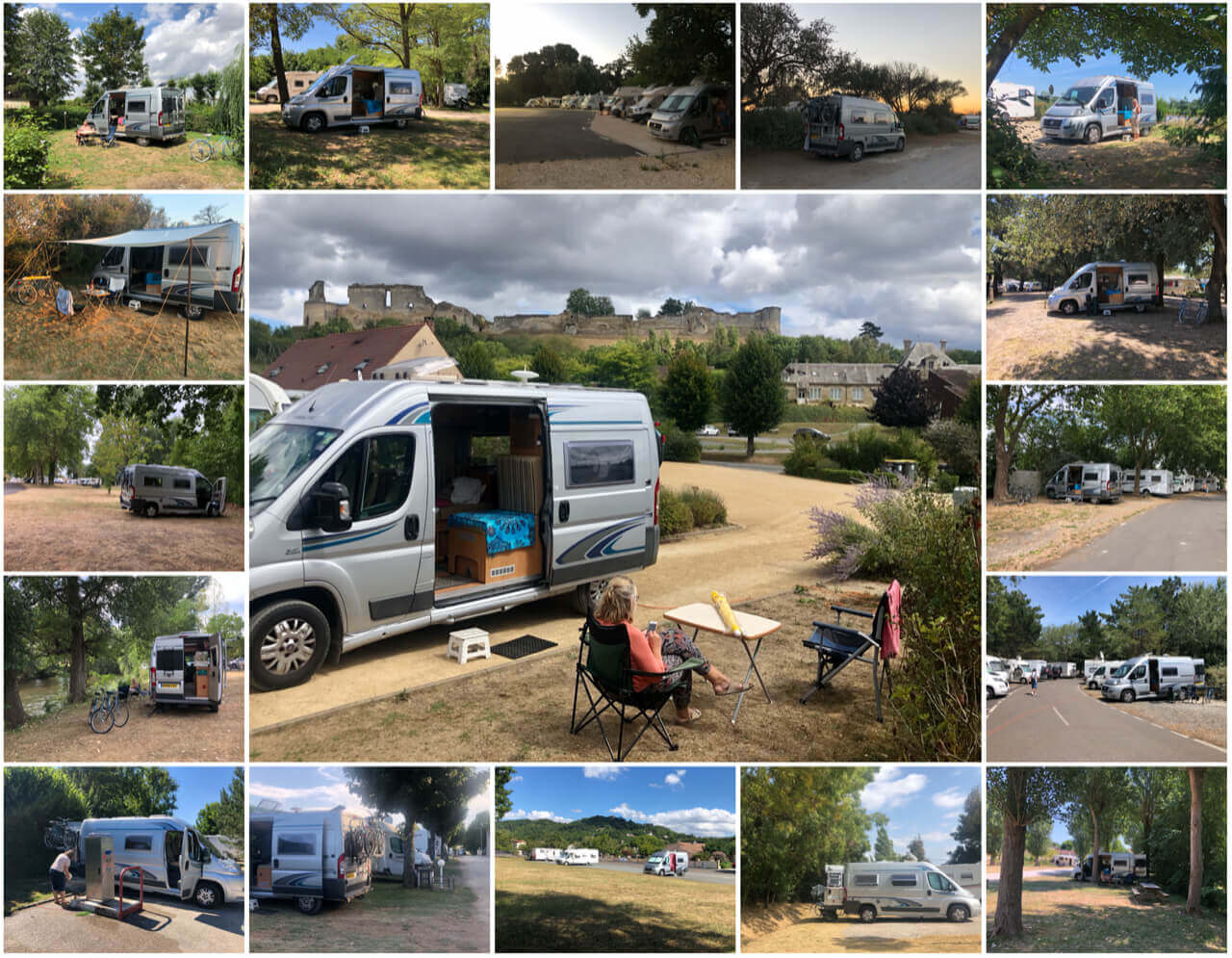Motorhoming has become one of the few safe ways to travel, the safest way over/under the Channel, and is perfect for long isolating holidays as well as short breaks, all over the continent.
There’s a boom in sales of motorhomes this year, and the rental side has taken off, too. Over 255,000 ‘mohos’ are registered on our roads (2017), with 1.7 million in the EU! And our local dealer has sold over 100 since June. However, there’s a dilemma facing owners of these wonderful chariots of adventure and discovery, as council parking places across the country are closing their car parks to them, forcing them to park where they’re not wanted, annoying those nearby, whilst campsites are full this year, due to increased numbers of campers in tents and caravans, with minimum 3+ night stays and ever-increasing prices, now up to £30-50/night. Where can they legally park for the night?
When you arrive in Great Yarmouth, my home town, and one of Britain’s biggest tourist destinations, you have wonderful facilities at the Yacht Station (free 24-hour moorings, showers, WC and waste facilities). If you come by coach, bus or train there are cafes, kiosks, WCs and waiting areas. When you come by car there are endless long stay and short stay car parks. But if you’re in a motorhome, there’s nothing. They can only park on normal size roadside pay and display spaces – no good for a valuable 2m wide 8m long motorhome. And there’s nowhere in town to empty your grey water or chemical toilet, or easily top up with fresh drinking water.
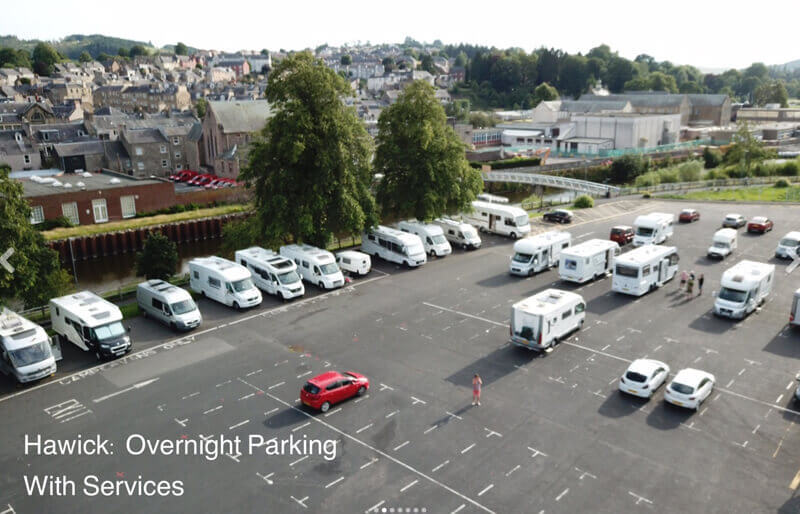 Campsites aren’t in the places motorhomes go to explore, their locations are too remote, and too expensive with lots of services we don’t need, minimum stays of 2-3 nights, and with unsuitable ground conditions in winter are usually closed from October to April, whilst motorhomes keep on rolling.
Campsites aren’t in the places motorhomes go to explore, their locations are too remote, and too expensive with lots of services we don’t need, minimum stays of 2-3 nights, and with unsuitable ground conditions in winter are usually closed from October to April, whilst motorhomes keep on rolling.
Councils need to understand that their own communities are being blocked, by their restrictive actions from a useful extra income that the motorhomes bring. The councils seem to be totally unaware of the benefits, and are doing nothing to help the situation, by installing barriers and restrictive notices.
These local communities could be benefiting from the good money their occupants spend in local communities. Motorhome owners are mainly retired folk with a lifetime’s savings, who go touring their homeland, tasting the local cuisine and culture. Therefore, if allowed to park up and sleep in them overnight, they’d stay in town to spend their good money in shops, cafes, pubs, restaurants, museums, sports and entertainment venues and at other local attractions.
Times are tough now, there’s been a downturn in town centre shopping in recent years, and Coronavirus has depleted the visits of coaches and overseas visitors. It’s the last straw for many once thriving businesses. Grabbing any extra income now is going to help keep businesses going, and developing. Blocking people who have money to spend on tasting the local cuisine and culture is absurd!
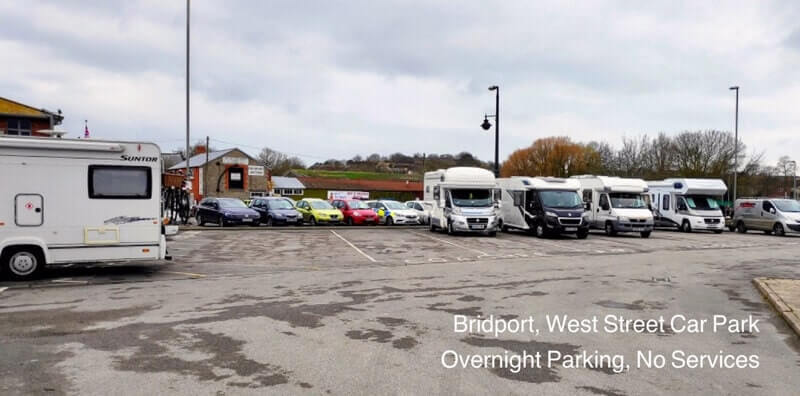 When you consider that the coach park is now closed and bus and train stations are empty, the motorhomes are the only tourist group that continues to come. So why push them away? There should be road signs to welcome them to special stopover places, and some services made available to top up with fresh water and waste drains for them to discharge the grey water and cassette toilet waste. There’s nothing for motorhomers at present.
When you consider that the coach park is now closed and bus and train stations are empty, the motorhomes are the only tourist group that continues to come. So why push them away? There should be road signs to welcome them to special stopover places, and some services made available to top up with fresh water and waste drains for them to discharge the grey water and cassette toilet waste. There’s nothing for motorhomers at present.
When touring in Europe we stay on special motorhome sites called ‘Aires’ in France, ‘Stelplatz’ in Germany and ‘Sostas’ in Italy. They are a wonderful network of special stopover parking areas (with water, waste and rubbish services needed every 3-4 days generally), to keep us going from one place to the next. France alone has over 6,000 aires in villages, towns and cities, usually several in large towns. Many of these are free to use, encouraging spending in the local communities, as well as popular tourist areas, and extra services like water can be obtained by collecting a token from the local shop. Signage could also indicate which businesses are keen to welcome them, with vouchers! We need aires here in Britain.
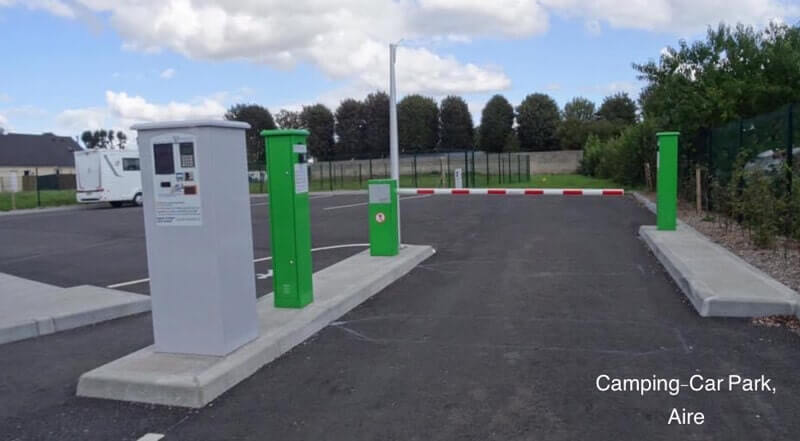 Aires are safe places to leave the van – these vehicles are expensive, costing £39,000 – £80,000+, and carry lots of valuables; and owners would be lost if they were stolen. Safely parked they can happily spend a day and evening exploring and enjoying the local cuisine and culture, architectural treasures, famous landmarks, before moving on the next day. Aires are available all year around. Bigger towns have several, with low charges usually €6-€13 per 24 hours, depending on how many services are included. Extra charges, e.g. €2 for 100L of water, and EHU (electric hook up) for those without solar power or in winter when there’s less sunshine.
Aires are safe places to leave the van – these vehicles are expensive, costing £39,000 – £80,000+, and carry lots of valuables; and owners would be lost if they were stolen. Safely parked they can happily spend a day and evening exploring and enjoying the local cuisine and culture, architectural treasures, famous landmarks, before moving on the next day. Aires are available all year around. Bigger towns have several, with low charges usually €6-€13 per 24 hours, depending on how many services are included. Extra charges, e.g. €2 for 100L of water, and EHU (electric hook up) for those without solar power or in winter when there’s less sunshine.
In Britain, however, the ease of touring is annoyingly difficult and expensive. We don’t have the special stopovers that foreign motorhome tourers are used to so foreign touring motorhomes are few and far between. Car parks suitable for stopovers lay mainly empty at night. Coach parks are now empty, too, and they all offer a simple, cheap and immediate solution to the problem. Once they’re made available to motorhomes, at a reasonable fee, say £5/night, it wouldn’t be long before it’s obvious the local economy is growing, and services could be installed to welcome more, and when a higher charge could be justified.
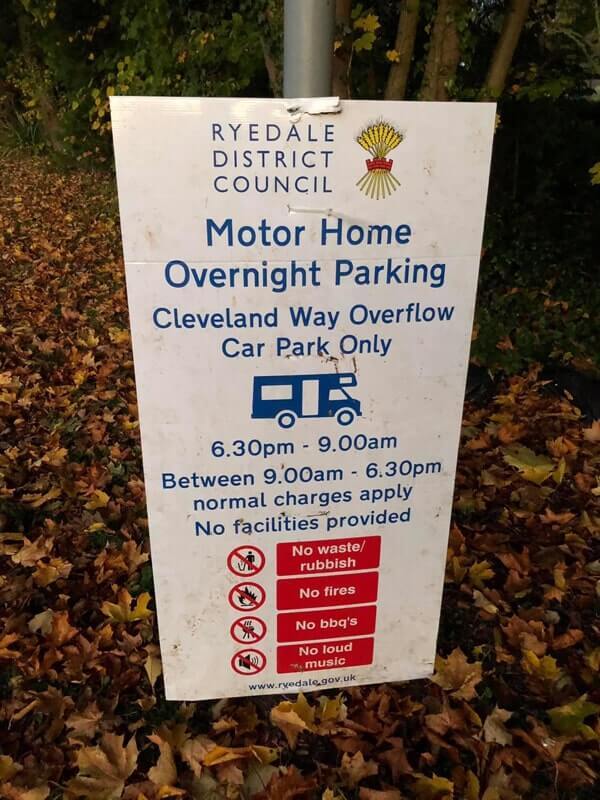 People on boating holidays, on rivers and canals, and the Norfolk Broads here, have similar needs; and they enjoy their travels with free 24-hour moorings and all the services for water, waste and rubbish available at the waterside. These facilities are being denied motorhome owners. Foreign visitors love coming to Britain, but few want to visit or return in their motorhomes as they’re just not welcome; touring is so pricey here, staying away from the places they’ve come to see, on camping sites, when they’re used to parking on aires.
People on boating holidays, on rivers and canals, and the Norfolk Broads here, have similar needs; and they enjoy their travels with free 24-hour moorings and all the services for water, waste and rubbish available at the waterside. These facilities are being denied motorhome owners. Foreign visitors love coming to Britain, but few want to visit or return in their motorhomes as they’re just not welcome; touring is so pricey here, staying away from the places they’ve come to see, on camping sites, when they’re used to parking on aires.
It’s ridiculous too, that organisations such as the National Trust, who are extremely worried about their loss of business this year, won’t let members stay overnight in their own car parks which they close up overnight. They could simply open them up to members, to let them stopover before their visits next day. The £30 they’d prefer them to spend in a campsite elsewhere could then be spent in their own cafes and souvenir shops, which would be a good earner all year round. They’ve been advertising in motorhome magazines for years! Attitudes to motorhomes must change!
So this is why a new group has been set up recently. It’s called CAMpRA – Campaign For Real Aires, and I’m a member. The intention is to have dedicated parking areas created for stopovers across the country, and to have the government rewrite some outdated legislation ‘Caravan Sites and Control of Development Act 1960’, which included ‘motor caravans’ some 60 years ago, to allow motorhomes to park up outside campsites. For the benefit of the motorhome industry and tourism this act needs amending, and falling in line with European behaviour.
There’s over 13,000 members in CAMpRA now and over 83,000 members on ‘Motorhome Madness’ group on Facebook. And there’s over 255,000 registered campervans and motorhomes in Britain who are the National Trust’s potential members, and were all working together to create aires in places that councils, and private owners can provide.
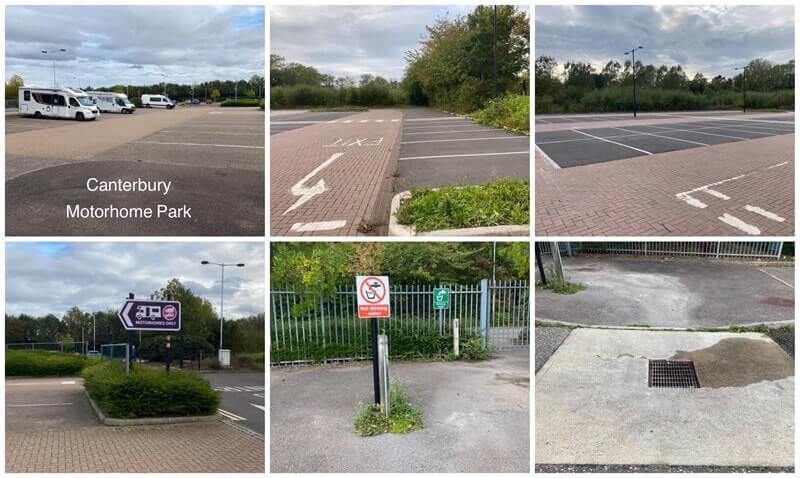 Please help us spread the message to councils and their communities that motorhomes are an important source of income for their local economy, and encourage them to welcome the owners who are a well-healed wealthy tourist group that is untapped so far. They simply want to come and visit and will spend their good money in our local communities nationwide, when they’re allowed to park up safely and sleep over in the neighbourhood’s parking areas.
Please help us spread the message to councils and their communities that motorhomes are an important source of income for their local economy, and encourage them to welcome the owners who are a well-healed wealthy tourist group that is untapped so far. They simply want to come and visit and will spend their good money in our local communities nationwide, when they’re allowed to park up safely and sleep over in the neighbourhood’s parking areas.
Some people are scared these people are spreading the virus but because a motorhome is self-contained, with its own kitchen with fridge, cooker and waste storage tanks, the risk is tiny as the only essential contact point with humanity is the supermarket. Aires and other parking places don’t have check-in offices, they’re operated with contactless payment systems, and social media forums show that they always take care to sanitise and stay safe, feeling privileged to be able to travel this way.
When camper vans and motorhomes arrive in town, let’s direct them to safe parking places with facilities they require, and with welcoming signage, and make Britain a place where they love to come to stop over.
For more information visit CAMpRA at www.campra.org.uk
Or better still, join in and become a free member at www.facebook.com/groups/CAMpRA.uk
Or email Charles Shelbourne at shelbourne14@gmail.com
